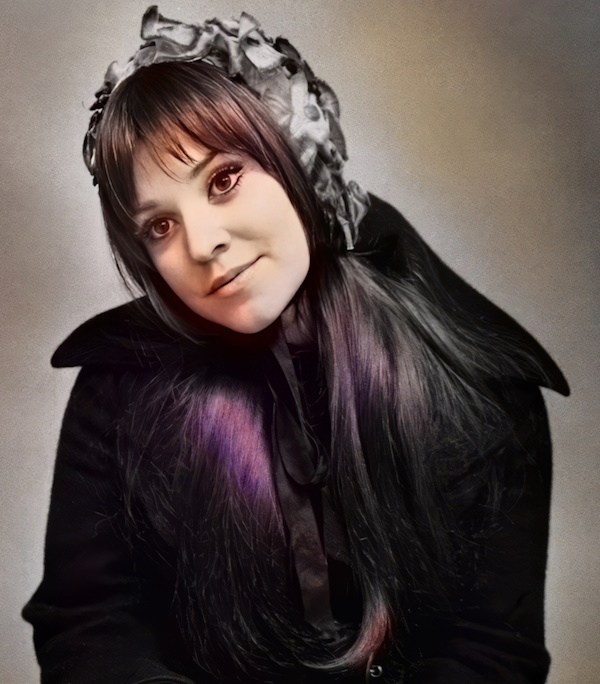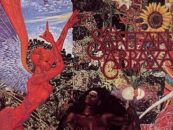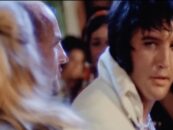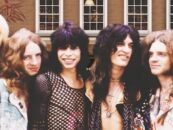Remembering Melanie Who Helped Define a Generation at Woodstock
by Best Classic Bands Staff Melanie Safka was just 22 years-old and essentially an unknown, when she performed a star-making set at the 1969 Woodstock festival. When the singer, known simply as Melanie, arrived at the site of the Woodstock Music and Art Fair in August 1969 with her mother, she was, she admitted in a 2018 interview with Best Classic Bands, “terrified out of my mind.” So much so that when the rain came falling down, she breathed a sigh of relief, hoping that the crowd would turn around and go home and that she wouldn’t have to perform.
Melanie Safka was just 22 years-old and essentially an unknown, when she performed a star-making set at the 1969 Woodstock festival. When the singer, known simply as Melanie, arrived at the site of the Woodstock Music and Art Fair in August 1969 with her mother, she was, she admitted in a 2018 interview with Best Classic Bands, “terrified out of my mind.” So much so that when the rain came falling down, she breathed a sigh of relief, hoping that the crowd would turn around and go home and that she wouldn’t have to perform.
When asked by Best Classic Bands’ editor Jeff Tamarkin what she remembered most vividly about the festival, she replied, “I got to the hotel and it wasn’t even the original place where I was supposed to go, and then they ushered me to a helicopter and that is where I was separated from my mother for the rest of the day.
“As I was leaving, I was in this euphoric high of, oh my God, I just resonated with 500,000 people, and that in itself is a mind- and life-changing experience. It wasn’t just, oh, I did a gig at Woodstock. I went on that stage an unknown person and I left a celebrity.”
The singer-songwriter did perform though, and her appearance (although not included in the documentary of the event) made the relatively unknown artist an instant star.
She soon recorded her first U.S. hit, 1970’s “Lay Down (Candles in The Rain),” and followed that up a year later with a quirky #1 pop single, “Brand New Key.”
Melanie died on January 23, 2024, just days shy of her 77th birthday. In announcing her passing on her Facebook page, her family wrote, “Mom passed, peacefully, out of this world and into the next.” No cause of death was revealed.
Born in Astoria, N.Y., on February 3, 1947, Melanie studied at the American Academy of Dramatic Arts, while simultaneously pursuing a singing career around the coffeehouses and folk clubs of Greenwich Village.
Influenced by the folk scene of the day, but also from artists as far afield as Edith Piaf, KurtWeill, jazz singer Blossom Dearie and her own mother Polly, herself a jazz singer, Melanie immediately caused a stir, a waif-like figure capable of unleashing a voice like a steamroller.
It was while attending an audition for a role in a dramatic production of the folk song “Barbara Allen” in 1967 that Melanie met Peter Schekeryk, who became her manager, producer and, the following year, her husband. Initially intrigued, and then entranced by her songs and her distinctly unconventional approach to them, he introduced her to his employers, the production company Hugo and Luigi, and Melanie made her recorded debut as backing vocalist on one of her own compositions, girl group Mommy’s recording of “Love In My Mind.”
Melanie joined Columbia Records later that year, releasing two singles—the signature “Beautiful People” and “Garden In The City”—before label head Clive Davis’ refusal to greenlight an album saw her depart and, in October 1968, sign with Buddah Records. Her debut album was released just two months later, but it was her appearance at Woodstock in August 1969 that heralded her breakthrough.
The experience inspired Melanie’s first U.S. hit, 1970’s “Lay Down (Candles in The Rain),” recorded with the Edwin Hawkins Singers. By that time, however, she had already scored hits in France, the Netherlands and Germany, markets which remained loyal throughout the remainder of her life—her final tour, in late 2022, took her back to the Netherlands.
Further hits followed, including “Peace Will Come,” “What Have They Done To My Song Ma,” “The Nickel Song” and a raw cover of the Rolling Stones’ “Ruby Tuesday,” while Melanie was also in demand as a songwriter; her songs have been covered by the New Seekers, Ray Charles, Cissy Houston and even U.K. rockers Mott the Hoople, as well as Billie Jo Spears, Nina Simone, Dead or Alive, Miley Cyrus, Alison Moyet, Morrissey, Queen Latifah and Kanye West.
Melanie’s star continued ascending. She was a regular on the festival circuit, performing at the Isle of Wight in 1970 and Glastonbury the following year. She was offered a role playing opposite Jim Morrison in a projected rock version of Othello and, in 1971, Billboard proclaimed her the year’s biggest selling female artist in the United States.
Growing frustration with Buddah’s marketing of her as “a cute little hippy girl,” however, saw Melanie break from the company to form her own Neighborhood Records—the first female-owned independent label in rock history.
“Brand New Key,” her first single for Neighborhood, topped charts around the world, including the United States; the accompanying Gather Me album, too, was a major hit. Both evidenced Melanie’s own dissatisfaction with the manner in which her music had been marketed in the past; both also demonstrated her deliberate withdrawal from the spotlight.
A follower of Meher Baba and lifelong advocate for world peace, 1972 saw Melanie make headlines when she placed her own career on hold to act as a spokesperson for UNICEF. The following year, she scrapped her projected next album when she opted instead to devote the time to her newborn daughter Leilah.
Coupled with albums of growing musical and lyrical intensity and complexity, such actions were seldom popular within the music industry. Early drafts of Melanie’s projected autobiography Naked include numerous examples of the obstacles with which she was confronted over the years. Her songwriting, too, is littered with her own take on the pitfalls that awaited women in the music industry in the ’60s and 1970s and which, she said recently, “still haven’t gone away. Not really.”
Melanie was an avid supporter, too, of naturopathy, vegetarianism and nature—published in 2023, her memoir Lake Days was a unique meditation on water, nature and a childhood spent reveling in the freedoms of both.
Content with being mistress of her own musical destiny, Melanie remained an independent artist for much of her career, creating such remarkable albums as Ballroom Streets (1978), Arabesque (1982), Am I Real Or What (1985), Precious Cargo (1991), Old Bitch Warrior (1995) and Ever Since You Never Heard Of Me (2010).
Melanie’s studio output slowed following the unexpected death of her husband Peter in 2010. However, with their multi-instrumentalist son Beau Jarred well trained as a producer and arranger by his father, and daughters Leilah and Jeordie frequently accompanying her, Melanie continued playing live, recording and regularly producing home concert specials for the delight of her vast internet audience.
A deal with Los Angeles-based Cleopatra Records brought her entire post-Buddah career under one roof for the first time ever. Until the end, she was excitedly anticipating the full-scale reissue program that began in 2024. Her recordings are available here under the joint supervision of her children.
Related: Musicians who died in 2024







1 Comment so far
Jump into a conversationThe song she did with the Edwin Hawkins singers I believe called lay down is absolutely enthralling and inspiring what a tour de force of a song and her voice is just mesmerizing…awesome